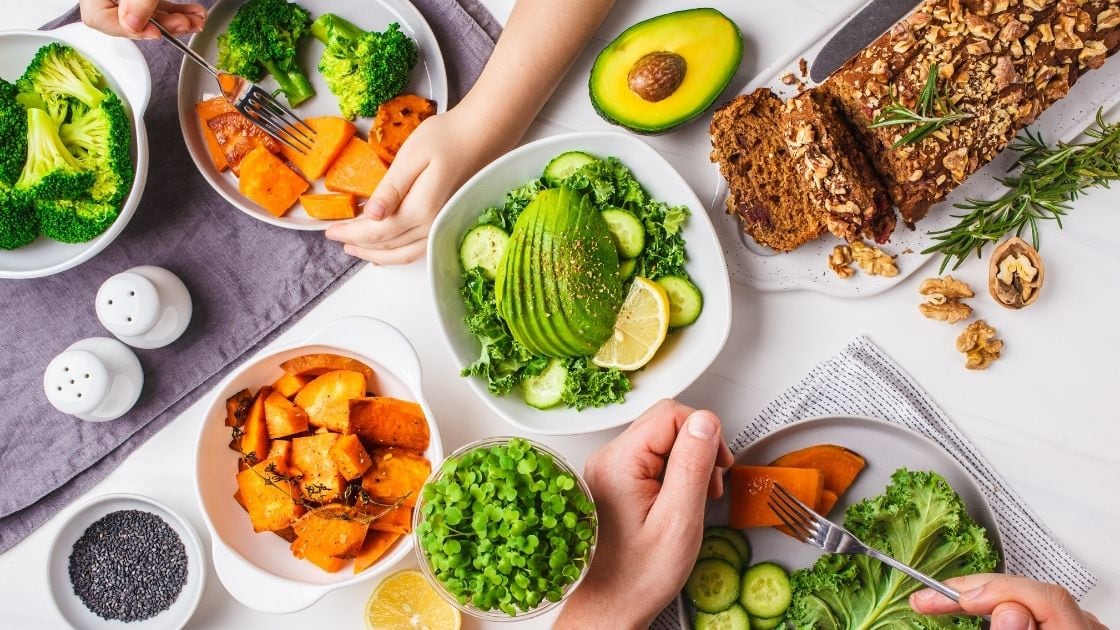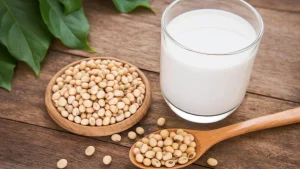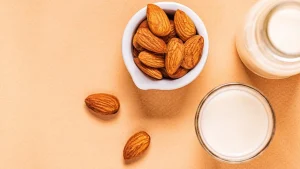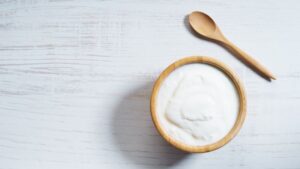Unfortunately, digestive problems affect us all. A modern diet, stress, hormonal imbalances, and various health problems can wreak havoc on your bowel movements. If your digestive system has found itself in need of some TLC, then read on. Here we’ve got our six best foods to help you poop – and they aren’t just prunes!
How Can A Healthy Diet Help You?
If you’ve ever suffered from the woes of tummy troubles, you’ll know just how pervasive and annoying they can be. From getting a good night’s sleep to your social life, constipation is an unwelcome side effect many of us suffer from time to time. Fortunately, food science has taught us that healthy eating and a diet rich in fresh, natural foods can help. Let’s have a deeper look.
What are the Best Foods for Poop?
1. Fruits and Vegetables
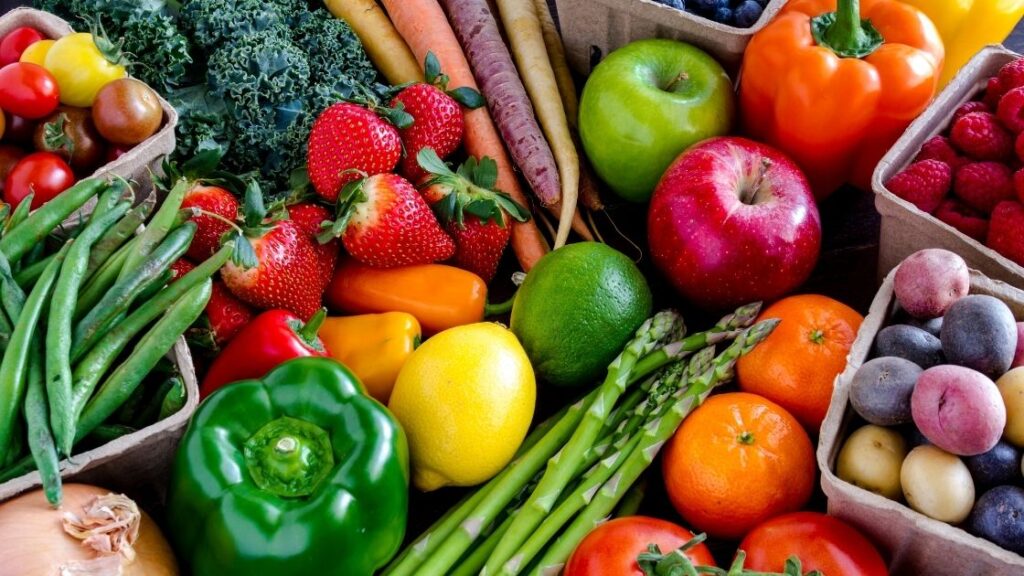
If you are suffering from chronic constipation, it may be worth considering your fruit and vegetable consumption. Fruits and veggies are one of the highest natural sources of fiber, also known as roughage. There are two types of fiber found in fruits and vegetables – soluble fiber and insoluble fiber. Let’s check out what each is good for:
Insoluble Fiber
This type of fiber adds bulk to your stool. Adding bulk sounds counterproductive, but it serves to draw water into your stool, which has a mild laxative effect. More water also makes a better consistency and helps your poop pass easily through your intestines. Delicious fruits and vegetables high in insoluble fiber include apples, green peas, broccoli, and cauliflower.
Soluble Fiber
As the name suggests, soluble fiber dissolves in water. This effect means that foods high in soluble fiber break down easier in your stomach, forming a sort of gel. When consumed with enough water, this has a natural laxative effect and helps with bowel movements. If you think you may be missing soluble fiber from your diet, try eating more fruits and vegetables like figs, sweet potato, oranges, carrots, tart cherries, and avocado.
Eating enough fresh fruits and vegetables is essential for any healthy diet as fruits and veggies are a good source of essential nutrients like Vitamin A, Vitamin C, Vitamin D, Vitamin K, and antioxidants.
All those vitamins and minerals mean that the leading food group you should include in any healthy living plan are fruit and vegetables (and ideally lots!). Mayo Clinic recommends adults aim for about two servings of fresh fruit and five servings of vegetables every day.
2. Whole Grains
One of the easiest ways of giving your tummy a helping hand is switching processed, refined grains for whole grains. Whole grains are one of the best foods for fiber and have so many more health benefits when compared to their processed counterparts.
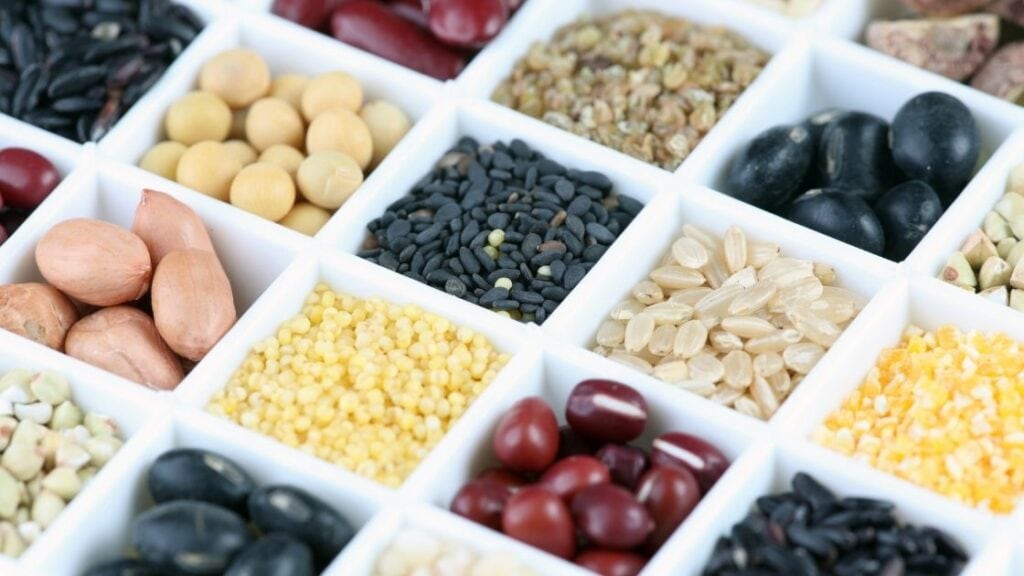
This effect is amplified as processed grains like white bread and rice are notoriously bad for the digestive system, and many complain of discomfort, pain, and bloating after consuming these types of foods. Whole grains are also great for weight loss and are generally lower in calories and sodium when compared to their processed counterparts. They also won’t spike your blood sugar and are a healthier option for those at risk of diabetes.
Think making the switch sounds hard? Think again! These days there is a wide range of delicious and digestion-friendly wholegrain options on the market.
- Try switching plain old rice for something adventurous like Quinoa or buckwheat.
- Ditch the toast and fill up on a bowl of morning oatmeal or bran flakes
- Craving some comfort food? Snack on some whole-grain treats like whole-grain granola or puffed brown rice cakes with peanut butter.
3. Dietary Fats
Did you know that one of the leading causes of constipation is caused by not consuming enough dietary fats? This effect is caused because healthy fats help pass food easily through your digestive tract. Of course, diets too high in fats can counteract this effect and lead to loose stool consistency or diarrhea.
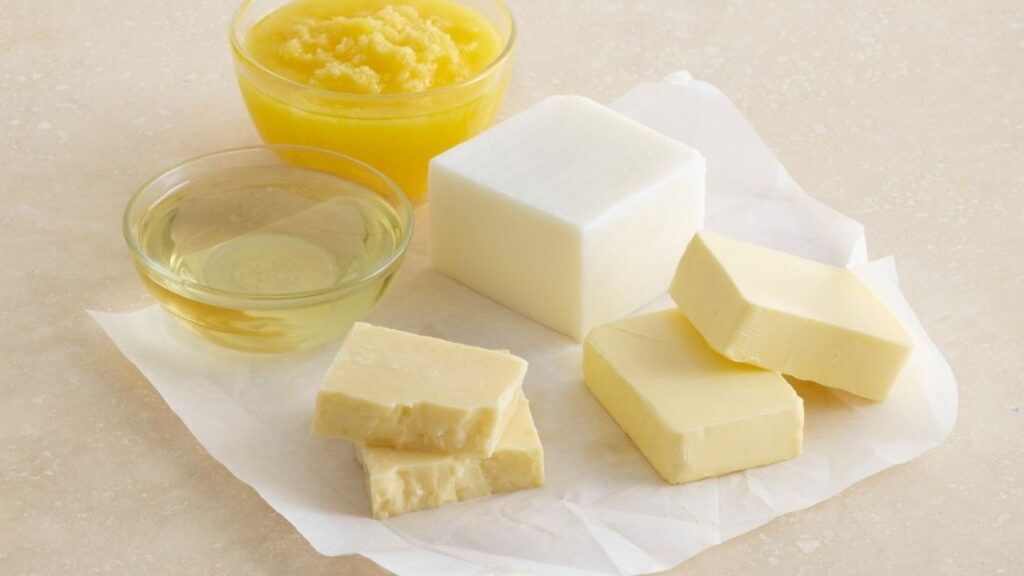
While we don’t recommend you go out and eat a whole jar of mayonnaise, healthy fats – especially those rich omega-three fatty acids protein and Vitamin B12 and Vitamin E are a great place to start. We recommend consuming a serving of healthy fats with every meal.
You may like to try:
- 1/2 avocado
- Fatty fish like salmon or mackerel
- Nut butter
- One tablespoon ground flaxseed or chia seeds
- Dark chocolate with peanut butter
- Extra virgin olive oil
- Greek yogurt
4. Probiotics
So I’m sure you’ve all heard about probiotics being the best food for poop. But what are probiotics? Probiotics are live microorganisms commonly found in fermented foods.
Think of minimally processed foods like greek yogurt, kefir, probiotic drinks, and sauerkraut. These foods are full of good bacteria like bifidobacteria and lactobacillus. These are types of healthy bacteria that are necessary for good gut health. Probiotics aid digestion and reduce digestive discomfort such as bloating, pain, and gas.
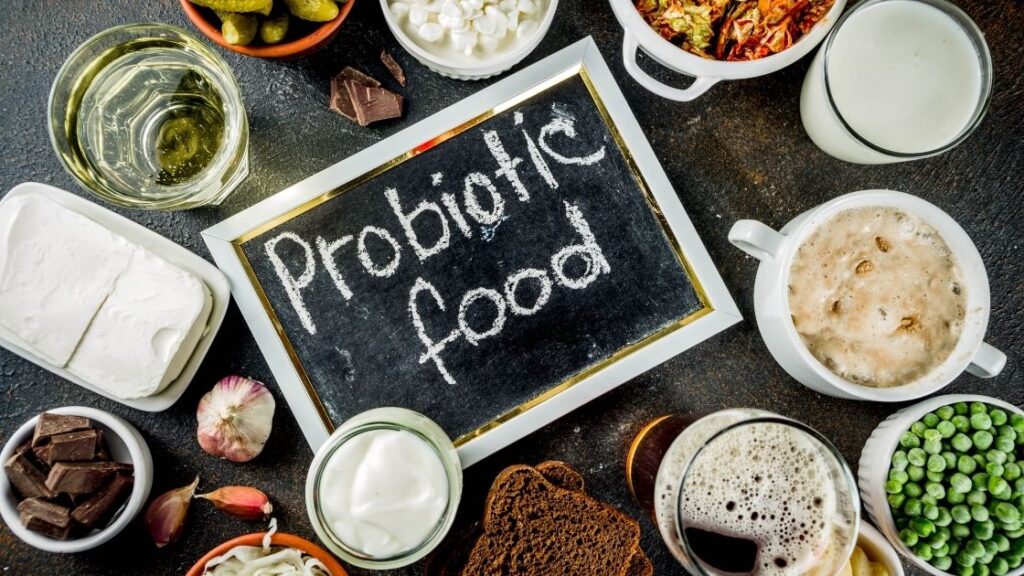
You should consume probiotics daily wherever possible. The best way to make the body fully consumes probiotics is to combine your pure probiotic product with other foods. So, if you buy a one-a-day yogurt drink mix, try and slip it into oatmeal or a natural fruit salad rather than just downing it solo!
5. Prebiotics
So that’s probiotics, now what are prebiotics? These are special types of fiber that help healthy bacteria in your digestive system – like those provided by probiotics – flourish and grow. Good sources of prebiotics include things like:
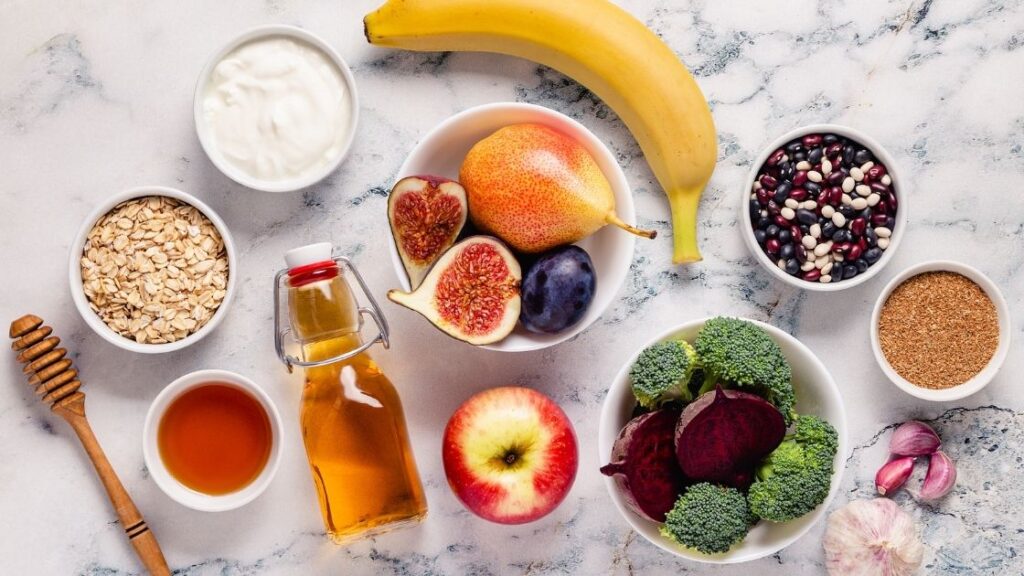
- Apples
- Bananas
- Artichokes
- Leek
- Asparagus
- Onion
- Garlic
Prebiotics will aid your digestive system by stimulating the growth of helpful bacteria in your gut and by keeping them healthy. In turn, these benefits will help keep you regular by assisting with digestion. For best results, try consuming your pre and pro-biotics simultaneously!
6. Spicy Foods
It’s true; spicy food is good for stimulating digestion! If you can stand the heat, spicy foods that contain capsaicin like cayenne and peppers can stimulate the digestive system and help ease your bowel movements!
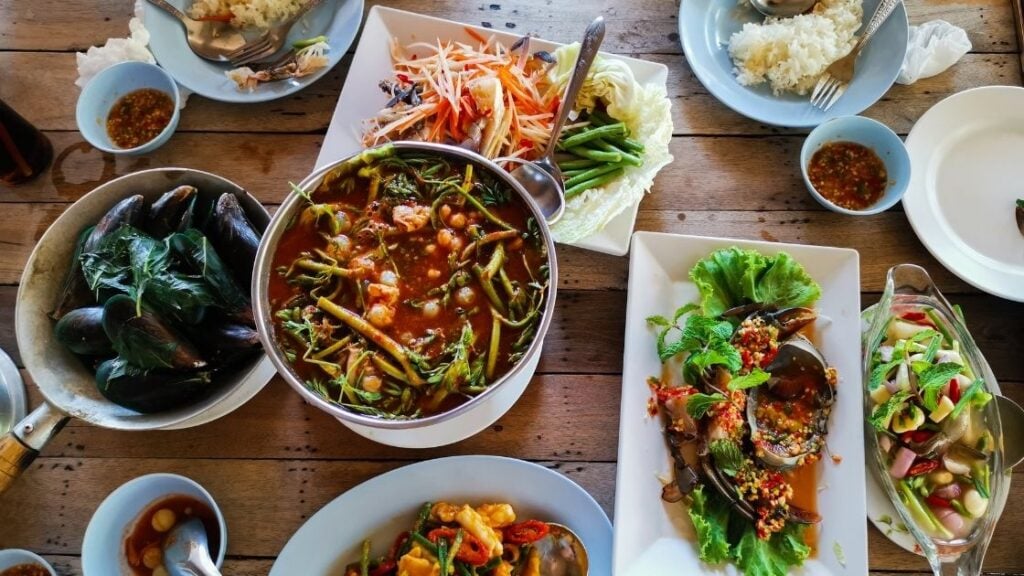
Now spice is a very personal choice, and while spicy foods are one of the best foods for a short-term fix, you should treat them with caution! Capsaicin is not the best for younger children or those with sensitive tummies and can lead to side effects such as heartburn. You have been warned!
Conclusion
Next time you are suffering from indigestion or constipation, consider making positive changes to your daily diet. Consuming a healthy diet rich in fruits and vegetables, whole grains, prebiotics, probiotics, and a moderate amount of healthy fats will help keep you regular. Healthy tummies unite!

Rosily Ryan is an accomplished health and fitness writer, editor, and health activist based in Sydney, Australia. With a wealth of knowledge and expertise in the health and nutrition industry, Rosily has established herself as a trusted authority in the field. She has contributed to several leading publications, including Pure Green Magazine, where her work has been widely recognized for its insightful analysis and engaging style.
Rosily’s passion for health and fitness is evident in her writing. Her extensive research and first-hand experience in the field allow her to provide valuable insights and practical advice to her readers. As an advocate for healthy living, Rosily has been actively involved in various health initiatives and campaigns that aim to raise awareness about the importance of physical and mental well-being.
